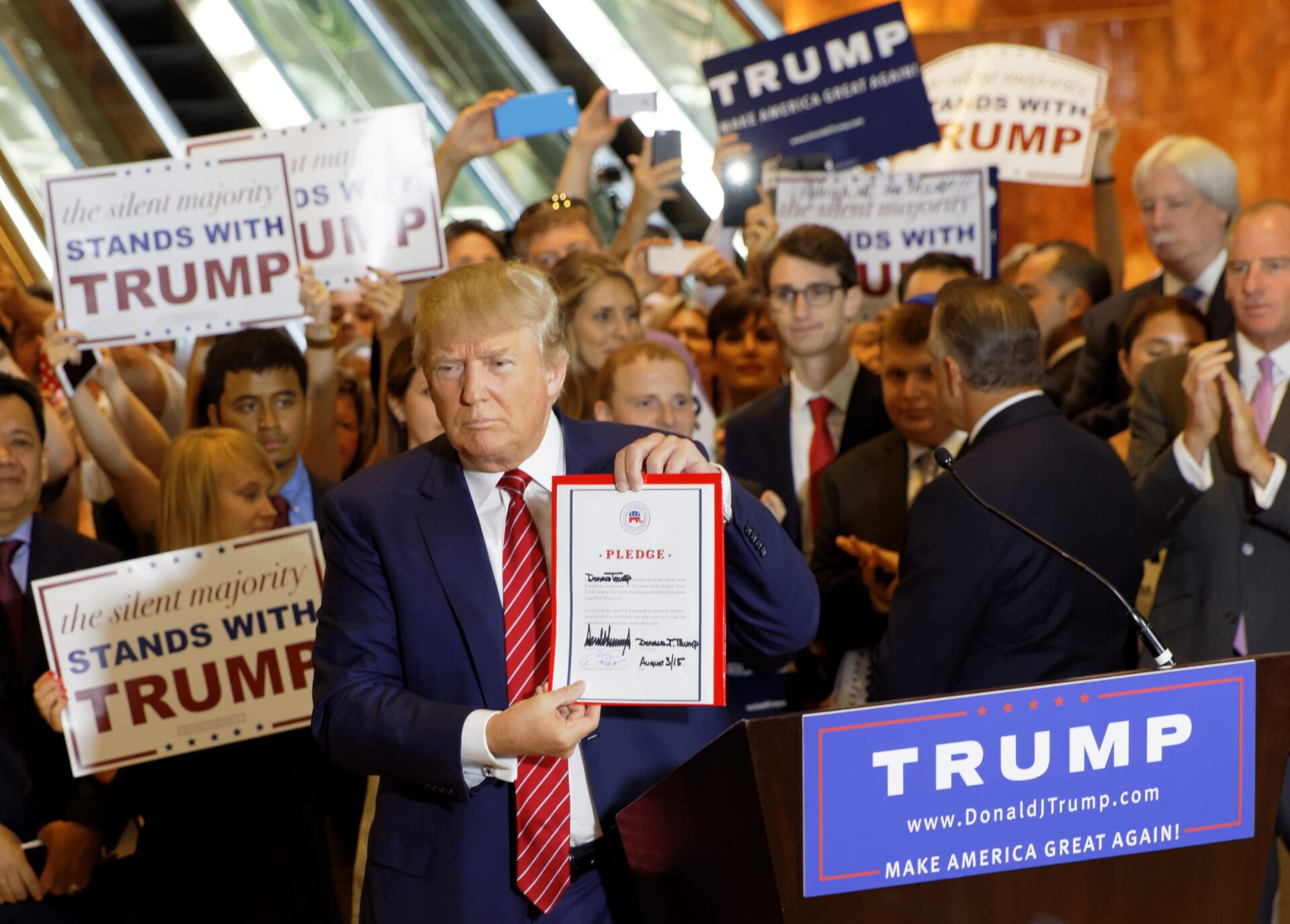By Jonathan Payn
How did someone like Donald Trump, a racist and misogynist buffoon with no political background – and who was not even the first choice for candidate for a significant sector of U.S. capital – come to power? And what does it mean for us?
The world is witnessing a rising tide of right-wing populism that threatens human and workers’ rights, and social and political freedoms won through generations of class struggle. This is seen, for example, in the rise of nationalist far-right parties like the National Front in France, Golden Dawn in Greece and, more recently, the Brexit referendum in the U.K. and the election of Donald Trump as the U.S. President. It is echoed in South Africa in politicians’ comments blaming “illegal” foreigners for crime and unemployment and in calls to tighten the boarders.
This right-wing populism has gained momentum in the wake of the 2007/08 crisis; which compounded the devastating effects of over 30 years of neoliberalism and financialisation – overseen by parties on both the left and the right – that has caused increasing unemployment, poverty and social insecurity. In the Western capitalist democracies millions of working class people that had been used to more stable jobs, as well as sections of the middle class, lost their jobs, savings and houses and were pushed into poverty. The fact that states intervened, in the U.S. under Obama, to bailout the banks – forgetting the people – contributed to growing disillusionment with the parties of the old political establishment.
Trump, like populists elsewhere, capitalised on the insecurity, discontent and disillusionment created by neoliberal globalisation and economic crisis; and on the inability of liberal democratic states – as well as the parliamentary and institutionalised left, from Syriza in Greece to Corbyn in the U.K. – to provide any semblance of a solution.
The solution populists advocate, however, is a false one: a cultural “solution” that places the blame on religious (mainly Muslim), sexual and ethnic minorities. The threat of Islamist terrorism, particularly since 9/11, and the massive influx of predominantly Muslim refugees into Western countries – itself a consequence of the “War on Terror”, the Syrian civil war and conflict with the Islamic State – is exploited to stimulate a sense of fear that ‘civilisation’ is under attack. Falling living standards, low wages, unemployment, social insecurity and every manner of social evil, from drugs and prostitution, is blamed on immigrants and other minorities.
As with the xenophobic utterances of Johannesburg Mayor Herman Mashaba – the DA’s very own Trump-ist tonsil – Trump’s hostility towards Mexicans and Muslims taps into a very real – but also very misplaced – fear and uncertainty created by intense socio-economic insecurity; itself a product of neoliberal globalisation. In response, the populists promise to get rid of immigrants and Muslims, ban refugees and revoke human rights and progressive laws they claim corrode the moral fibre of society. To this end they want to put up walls on their boarders to keep immigrants, refugees and other minorities out. Linked to this, they want to increase state funding to militarise and police the walls, and shoot anyone who tries to cross without an invitation.
Rather than addressing the root causes of people’s suffering and insecurity – neoliberal capitalism and its state – Trump and populism find a scapegoat in opposition to which they can unite people with contradictory and even opposing interests to build their nationalist and class projects – a cross-class alliance of all the “victims” of the crisis that benefits the ruling class.
Whether in the U.S., Europe or South Africa tightening borders and building walls to keep immigrants and refugees out will not solve the problem, which is fundamentally an economic problem.
But economically, despite his executive orders canceling trade deals and his electoral talk of a new trade protectionism, Trump is not anti-free trade and does not represent a break with neoliberalism. He simply wants to move from multilateral, multi-country free trade agreements to bilateral agreements where he thinks the U.S. will have stronger leverage and will be able to force its trading partners to accept conditions that will benefit U.S. corporations. Either way, free trade is free trade and workers lose out.
The rise of Trump and populism is the result of a dual crisis of global capitalist markets and the liberal democratic institutions designed to safeguard them – as evidenced by the failure of every attempt to use these institutions to solve problems, from Syriza to Podemos to Corbyn.
Now, more than ever, we need radically democratic and independent social movements to build people’s power from below to resolve – once and for all – the dual crisis of neoliberal globalisation and the state.
